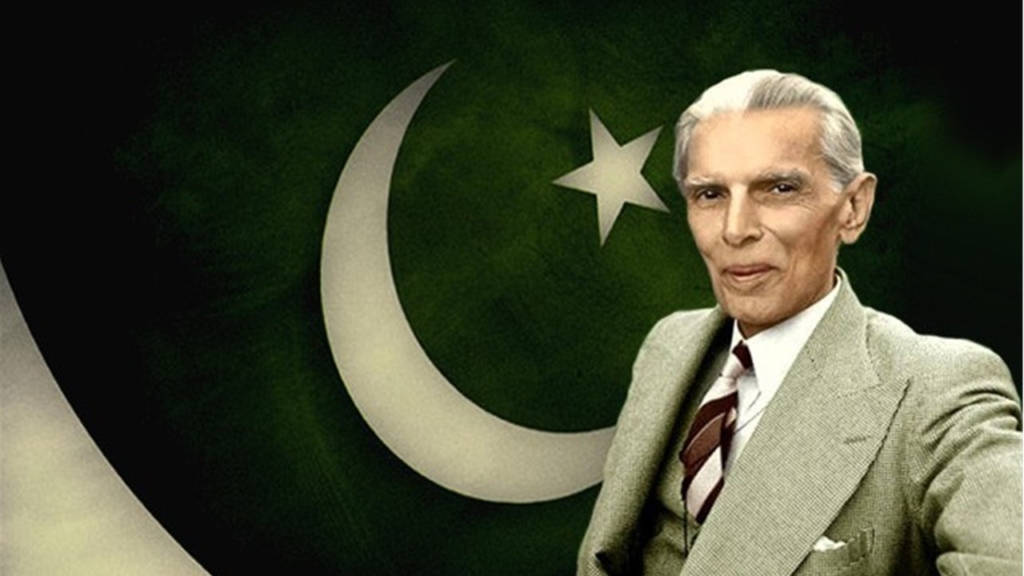 Jinnah never claimed to be the sole spokesperson of his nation. His lifelong stance was that the sole representative of the Muslim nation was All-India Muslim League (and later its off-shoot in the new state). In April 1946, he also took the pledge of loyalty to the League just like ordinary Muslims.
Jinnah never claimed to be the sole spokesperson of his nation. His lifelong stance was that the sole representative of the Muslim nation was All-India Muslim League (and later its off-shoot in the new state). In April 1946, he also took the pledge of loyalty to the League just like ordinary Muslims.
The idea that he was the sole spokesperson of his nation seems to have originated in the contempt in which his nation was held by the Indian nationalists and some of their foreign masters.
Gandhi described the Indian Muslims as a batch of converts, whose claim to be a nation seemed preposterous to him. Likewise, Lord Mountbatten felt offended when Jinnah refused to accept his partition plan without consulting the party. ‘I am not the Muslim League,’ said Jinnah. The Viceroy replied rudely, ‘Don’t tell me that. You can try and tell the world that. But please don’t try to kid yourself that I don’t know who’s who and what’s what in the Muslim League.’ Recalling this dialogue many years later, he insisted that Jinnah ‘was the Muslim League and what he said, they did.’
Arrogance might have prevented the British aristocrat from conceding that Muslims could also have a political organization but it is difficult to understand why Stanley Wolpert also holds the same belief. Sir Stafford Cripps noted that Jinnah refused to go against the dictates of his party because ‘he was not his own master’. In Jinnah of Pakistan, Wolpert calls it ‘a singular confession for Jinnah, yet one he knew would appeal to Cripps.’ By no means was it ‘a singular confession’ but it seems that Wolpert got carried away by an urge to suggest that a genuine political organization was part of Cripps’ background but not of Jinnah’s.
The idea remains the central theme in the biography written by Wolpert but forms the very title of the book written by Ayesha Jalal, The Sole Spokesman. ‘Jinnah sought to be recognised as the sole spokesman of Indian Muslims,’ she writes, in stark contradiction to Jinnah’s lifelong stance. A scholar like her is perhaps within her rights in interpreting facts according to her perception but we would fail to see the bigger picture if we mistake that interpretation, no matter how well-presented, as fact.
The bigger picture here is the party Jinnah belonged to and the reason behind his calling it the sole representative of the nation.

Salams,
Thank you Naeem for your comment. It is good to hear about the concept of “Collective Desire”. Could anyone please feel the pulse of the Pakistani Nation, and comment on her present Collective Desire.
Thanks
My view is that Jinnah, due to his towering personality, held the commanding position in the Muslim league yet wanted to act according to the collective will of the Muslims at that time. He understood the nature of his struggle against the British and Hindu dominated congress where, both, were well organized in their thoughts and action. On the contrary Muslims were far less educated, organized and were lost in the stories of past glories, yet the desire of South Asian Muslims Identity was simmering in their hearts. 200 years of slavery at the hand of British and surge of Hindu nationalism and movements like Shudhi and Sanghtan did cultivate the collective wisdom among Muslims. They demanded preservation of Muslim identity by allowing an electoral process to guarantee the preservation of that identity and when denied that basic right, they had no choice but to demand a separate homeland.
It will be STUPID to suggest that one person alone with strong opposition from within (Khaksar, etc.) Muslims and united fronts of Congress and British was able to shape the mindset or collective desire/wisdom of millions of Muslims.
He was a democrat and being a leader could feel the pulse of the collective desire that was yearning in the hearts of the Muslims. He therefore subjected himself to that desire as he knew that collective wisdom ultimately prevails.
All India Muslim League echoed the feelings of the majority of Muslims and Jinnah served AIML as its leader working closely many others leaders and workers in founding Pakistan.
Special tribute to Quaid-e-Azam on his 69th death anniversary.